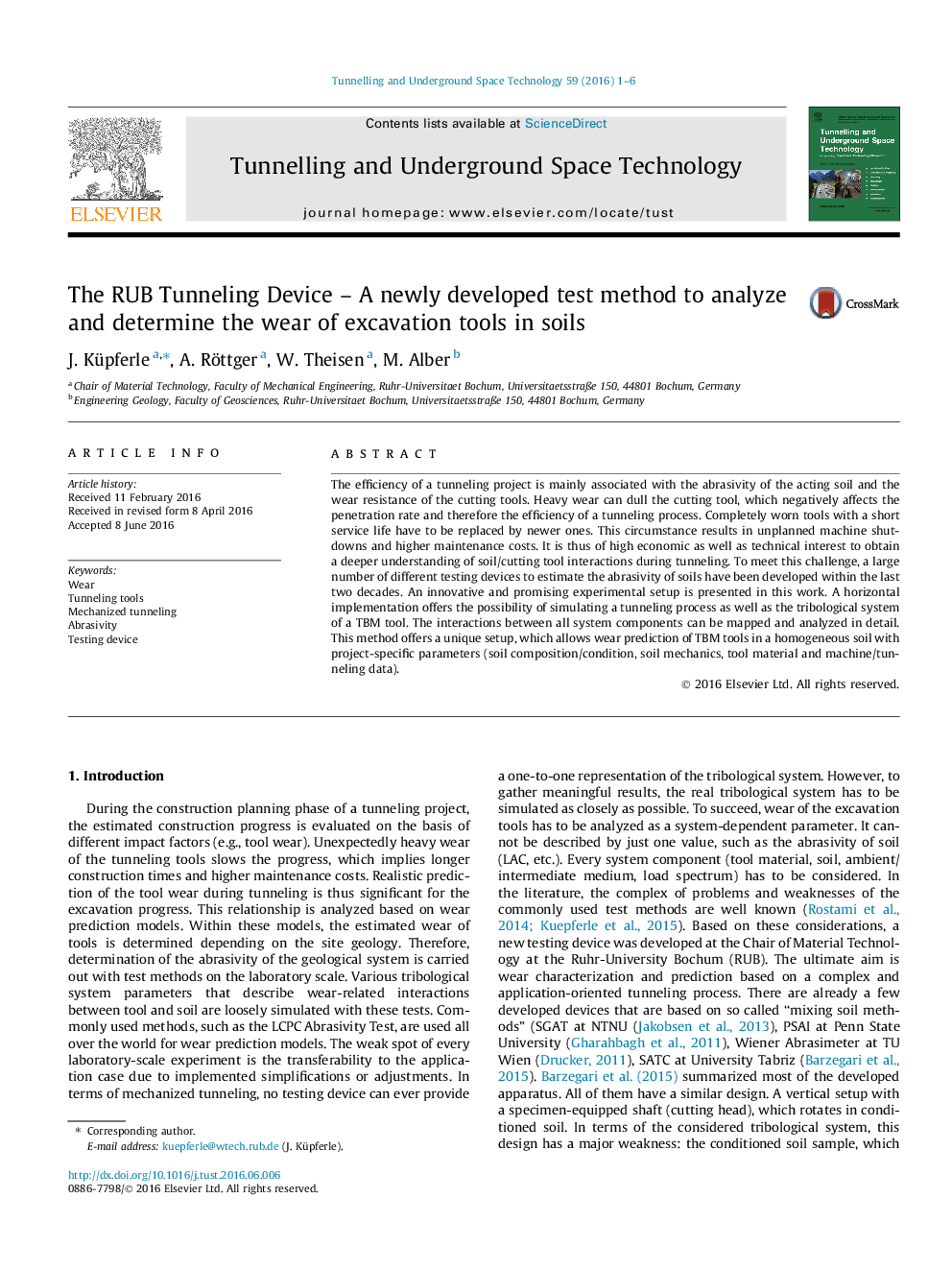| Article ID | Journal | Published Year | Pages | File Type |
|---|---|---|---|---|
| 6783259 | Tunnelling and Underground Space Technology | 2016 | 6 Pages |
Abstract
The efficiency of a tunneling project is mainly associated with the abrasivity of the acting soil and the wear resistance of the cutting tools. Heavy wear can dull the cutting tool, which negatively affects the penetration rate and therefore the efficiency of a tunneling process. Completely worn tools with a short service life have to be replaced by newer ones. This circumstance results in unplanned machine shutdowns and higher maintenance costs. It is thus of high economic as well as technical interest to obtain a deeper understanding of soil/cutting tool interactions during tunneling. To meet this challenge, a large number of different testing devices to estimate the abrasivity of soils have been developed within the last two decades. An innovative and promising experimental setup is presented in this work. A horizontal implementation offers the possibility of simulating a tunneling process as well as the tribological system of a TBM tool. The interactions between all system components can be mapped and analyzed in detail. This method offers a unique setup, which allows wear prediction of TBM tools in a homogeneous soil with project-specific parameters (soil composition/condition, soil mechanics, tool material and machine/tunneling data).
Related Topics
Physical Sciences and Engineering
Earth and Planetary Sciences
Geotechnical Engineering and Engineering Geology
Authors
J. Küpferle, A. Röttger, W. Theisen, M. Alber,
